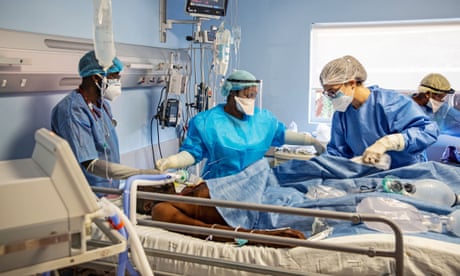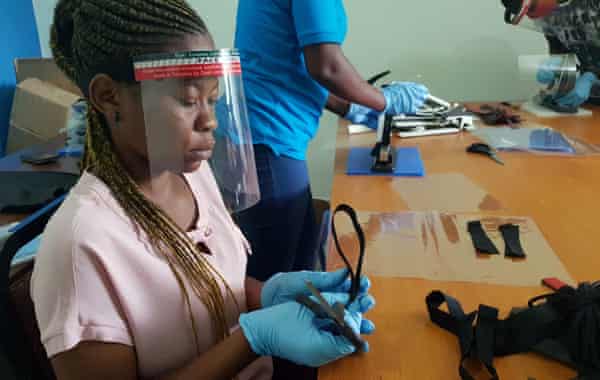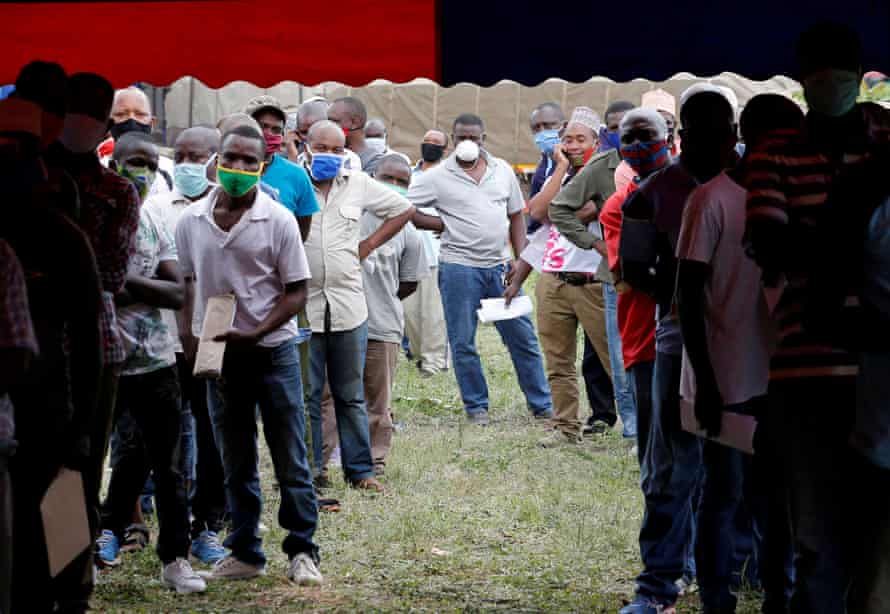Rising cases of coronavirus in Africa threaten to overrun fragile healthcare systems and test the continent’s much-touted resilience to the disease, according to the World Health Organization’s regional office for the continent.
The global health body stated that infections were on the rise in at least 12 countries in Africa including Cameroon, Ethiopia, Kenya and Guinea.

Across the continent, doctors, nurses and other healthcare workers are stretched to the limit as the total cumulative number of infections this week rose above 4.1m, with more than 110,000 fatalities, a sharp rise on the 2.7m infections recorded at the end of December. South Africa leads with more than 1.5m reported cases and more than 52,000 deaths.
The WHO said only 7 million people had now been vaccinated in a continent of more than a billion people.
The second wave of Covid-19, which began towards the end of 2020, hit African countries more aggressively, with a 30% rise in infections compared with the first wave. However, fewer public health measures were implemented than in the first wave, according to a study this week in the Lancet medical journal.
By the end of 2020, the continent had recorded 3-4% of the global total of Covid-19 cases – and more than 65,000 deaths. But some scientists now worry that a significant underestimate of the true picture could distort the detection of new variants.

In Kenya, positivity rates are up to at least 20% and the country has some 123,000 reported cases with 14,000 cases reported this month alone. More than 2,000 Kenyans have died from the disease since March 2020.
The government and medical personnel have now sounded alarm bells, warning Kenyans of a tough time ahead. “We are in the third wave of this virus, and it’s a wave that threatens to erase all the gains we have made as a country in fighting the pandemic over the last one year,” Kenya’s health ministry tweeted, amid reports that all the country’s intensive-care unit beds had been filled by Covid-19 patients and doctors had fallen ill with the virus themselves.
Alfred Mutua, governor of Machakos county, said all ICU and high-dependency unit beds as well as all oxygen points in his area were at full capacity with Covid-19 patients. “People are waiting for others to die to get a bed,” he tweeted.
The WHO said there were inadequate facilities for testing and isolation and that healthcare workers were now bearing the brunt of the pandemic through “work overload, poor infection prevention and control measures”. Healthcare worker infections account for 3.5% of the total number of Covid-19 cases in Africa.
“Covid-19 has heavily jolted the health workforce in the African region. Since the beginning of the pandemic, 267 health worker infections have been recorded on average every day, translating to 11 new health worker infections per hour,” the WHO.
The Kenya Medical Practitioners, Pharmacists and Dentists Union urged citizens to be cautious when visiting medical facilities. “The acute shortage of doctors across the country is detrimental to health services delivery amidst the pandemic. This month has recorded an increase in healthcare workers’ infection, there are currently 10 doctors admitted in various facilities across the country and this indicates the need for extra precaution by members of the public,” it said in a statement.

The situation was exacerbated by some healthcare workers’ reluctance to be vaccinated in what the KMPDU said was a lack of “sensitisation and awareness” among staff.
In neighbouring Tanzania, where the WHO last month called the situation “very concerning”, the government has yet to report on Covid-19 situation, with analysts hoping the new president, Samia Suluhu Hassan, will now step up action. The former president, John Magufuli, died this month and had repeatedly trivialised the threat from the disease, instead promoting prayer and herbs as a cure. There was much speculation that Magufuli had contracted the disease when he disappeared from public view.
Tanzania has lost several prominent people to Covid, including Seif Sharif Hamad, first vice-president of Zanzibar, in February. He had earlier disclosed that he had tested positive for Covid-19.


